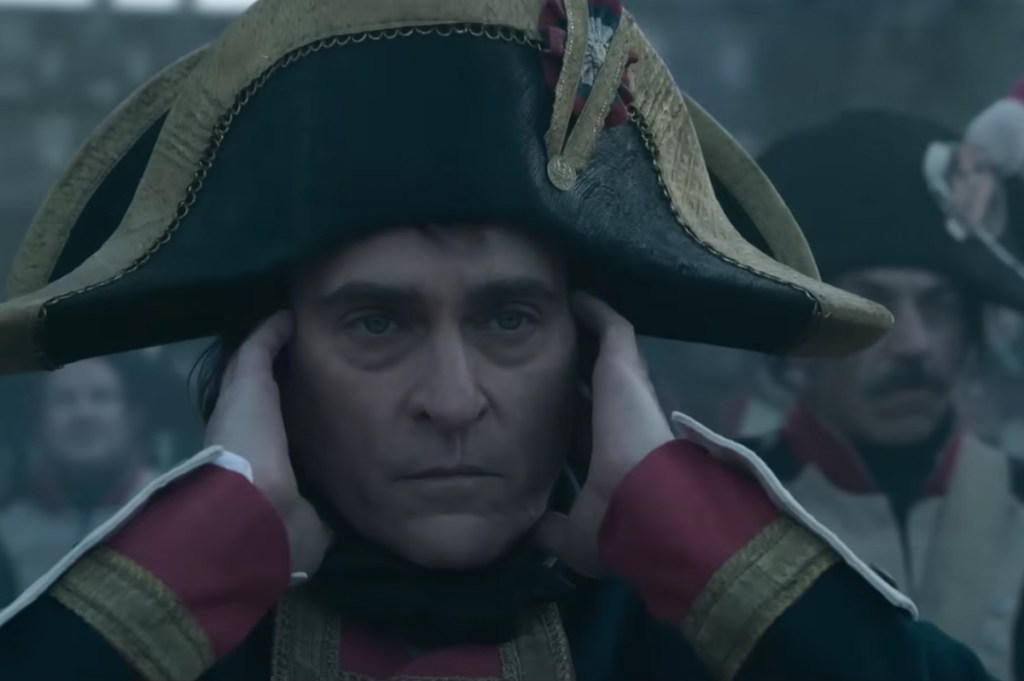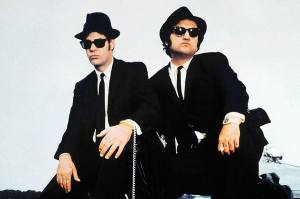The trailer for Ridley Scott’s eagerly awaited magnum opus Napoleon has finally arrived — and it does not disappoint. Boasting what looks like another Oscar-worthy performance from Joaquin Phoenix, the trailer teases an intoxicating mixture of full-throttle battle scenes, executed and shot on a scale unparalleled in modern cinema, as well as insight into the complex psyche of the French emperor, to say nothing of his often-tortuous relationship with his wife Josephine (played here by Vanessa Kirby.)
Apple TV+ has invested a fortune into the film — which will receive a cinematic release first, before going onto the streaming service — and it isn’t hard to see where the money has gone. The recreations of the battles of Austerlitz and Waterloo, among others, look peerless, and the mass execution of aristocrats in 1793 Paris probably seemed on the small side in comparison. The only cause for concern is that Scott’s epics alternate between the magnificent (Gladiator, the director’s cut of Kingdom of Heaven) and the disappointing (Robin Hood, Exodus: Gods and Kings), but Phoenix, Kirby and a fine supporting cast (including Rupert Everett playing what looks like the Duke of Wellington) should make this one a winner.
Yet what’s arguably even more interesting about Napoleon than explosions and portentous-yet-barbed dialogue is the fact that it represents a return to a genre that appeared to be dead and buried in Hollywood but has returned this year with a vengeance: the man’s movie. Such pictures as Oppenheimer, The Killer, Killers of the Flower Moon and even the recent Mission: Impossible and Indiana Jones films are all aimed squarely at a male audience that would once have been regularly entertained at cinemas, but now find themselves largely cast adrift.
Not all that long ago, this was very different. Such battle-oriented epics as Master and Commander and Gladiator — to say nothing of films that didn’t star Russell Crowe — were rich in violent action and scenes of male camaraderie. If the female roles were either thin or non-existent, this did not prove too much of an issue when it came to box office receipts. Men have traditionally enjoyed films about fighting and honor and with painstaking recreations of historical scenes from ancient Rome to the Napoleonic wars. They were also critically acclaimed, often winning vast numbers of awards in the process. Then the commercial failures of the likes of Alexander and, recently, Scott’s The Last Duel seemed to suggest that audiences had tired of male-oriented pictures. Instead, in came four-quadrant superhero films, carefully aimed to appeal to wide audiences, and with their violence and essential manliness toned right down.
It is a stereotype to suggest that all a male viewer wants to watch at his local cinema is bloodshed. Yet there is going to be an enormous amount of that on offer during the rest of 2023 (although Oppenheimer, bizarrely, is promising extended scenes of nudity and sex from its stars Florence Pugh and Cillian Murphy instead; whatever floats your boat). The return of such maestros as David Fincher, Martin Scorsese and Scott to cinemas is welcome — even if all their pictures had to be funded by streaming services — but it is also a reminder of how few younger filmmakers are emerging with this kind of picture.
We shall see whether Napoleon is another Scott classic, or a disappointment, but its early marketing suggests that the now eighty-five-year-old director has returned with a big, manly epic, full of swagger and panache. When it emerges this Thanksgiving, cinemas will be awash with viscera and blood — metaphorically speaking — and if it proves a critical and commercial hit (Scorsese’s picture has already won rave reviews at Cannes) then we can tentatively look forward to a renaissance in male-oriented pictures. I’m still holding out for a Lord Nelson biopic, but there’s Gladiator 2 on its way next year, with persistent rumors of a Russell Crowe cameo. Who knows: if enough men have films aimed at them again, they might even start going to the cinema in considerable numbers instead of snoozing in front of Netflix in their underwear. And if you build it — and do it well — they will, let’s hope, come.












